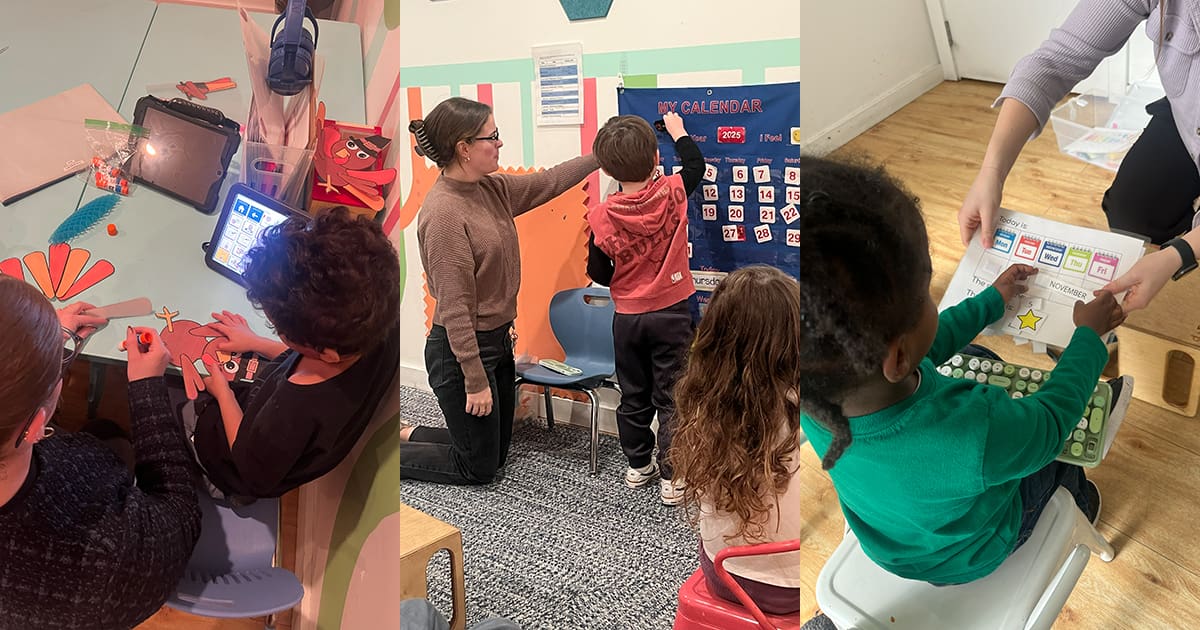Share this Post

For many children, mealtime is a time of joy and connection. But for some families, it can be a source of stress, anxiety, and worry when a child struggles with feeding issues. Whether it’s picky eating, food aversions, or difficulty chewing and swallowing, feeding challenges can affect a child’s health, growth, and quality of life.
SOS (Sequential Oral Sensory) Feeding Therapy is an evidence-based approach that goes beyond simply teaching children to eat—it focuses on building positive, healthy experiences with food. At CST Academy, we understand the importance of meeting each child’s unique needs with care and patience. This guide will help you understand how SOS Feeding Therapy works, why it’s effective, and how it can help your child overcome feeding challenges.
Understanding Feeding Challenges in Children
Feeding difficulties can present in various ways and for a range of reasons, including:
- Sensory sensitivities: Children with heightened sensory responses may find certain food textures, smells, or tastes overwhelming.
- Medical conditions: Gastroesophageal reflux, food allergies, or oral motor difficulties can contribute to mealtime struggles.
- Behavioral factors: Negative mealtime experiences, such as pressure to eat or past choking incidents, can create food aversions.
- Developmental delays: Children with autism or other developmental disorders may face additional challenges in eating and trying new foods.
Recognizing the underlying cause of your child’s feeding difficulties is key to developing a successful intervention plan.
What Is SOS Feeding Therapy?
The SOS (Sequential Oral Sensory) Approach to Feeding was developed by Dr. Kay Toomey and is rooted in the idea that eating is a developmental process involving both sensory and oral-motor systems. The therapy focuses on gradually increasing a child’s comfort with food through playful exploration and positive reinforcement.
Unlike traditional methods that may involve forceful feeding or pressure, SOS Feeding Therapy creates a safe, low-pressure environment where children are encouraged to interact with food at their own pace.
Why Is SOS Feeding Therapy Effective?
SOS Feeding Therapy stands out because it addresses the “whole child” by considering the physical, emotional, and sensory aspects of feeding. Here’s what makes it effective:
- Gradual, step-by-step progression: Children move through the feeding process in manageable steps, from tolerating food near them to tasting and eventually eating it.
- Playful interaction: Therapy sessions are often play-based, making the experience fun and engaging rather than stressful.
- Multisensory exposure: Children engage with food using all their senses—sight, smell, touch, taste, and sound—helping them become more familiar and comfortable with new foods.
- Family involvement: Parents and caregivers are actively involved in the process, ensuring that progress made during therapy continues at home.
How Does SOS Feeding Therapy Work?
SOS Feeding Therapy follows a step-by-step approach designed to desensitize children to food and build their confidence around eating. Here’s an overview of the key stages:
1. Tolerating the Presence of Food
The first step is helping the child feel comfortable being around food without pressure to eat it. This stage may involve:
- Placing food on the table nearby
- Allowing the child to observe others eating
- Talking about the food in a positive, non-threatening way
The goal is to reduce anxiety and build trust in the environment.
2. Interacting with Food
Once the child is comfortable being near the food, they’re encouraged to interact with it in playful ways without any expectation of eating. Activities may include:
- Touching the food with their hands
- Smelling the food
- Pretending to feed a toy or stuffed animal
These activities help familiarize the child with the food’s texture, smell, and appearance.
3. Tasting the Food
As the child gains confidence, they’re encouraged to bring the food to their mouth and taste it. This stage is not about consuming large amounts but about developing a positive association with tasting.
- The child might lick the food or hold it on their tongue.
- Therapists offer praise and encouragement for each small success.
Positive reinforcement is key to helping the child feel proud of their progress.
4. Eating the Food
The final stage involves encouraging the child to chew, swallow, and eat the food. This stage happens naturally as the child’s comfort level increases through the previous steps.
Therapists monitor the child’s progress and adjust the pace based on their individual needs, ensuring a supportive and non-pressured environment.
Who Can Benefit from SOS Feeding Therapy?
SOS Feeding Therapy is designed for children with a variety of feeding challenges, including:
- Picky eaters who have a limited diet
- Children with sensory processing disorders
- Children with oral motor delays or difficulty chewing
- Children with autism who have food aversions
- Children who experience anxiety around mealtime
If your child exhibits any of these behaviors, SOS Feeding Therapy could be a valuable part of their developmental journey.
Tips for Supporting Your Child’s Progress at Home
Parents play a vital role in helping their child succeed with SOS Feeding Therapy. Here are some tips to reinforce progress at home:
1. Create a Calm Mealtime Environment
Minimize distractions like screens or loud noises during meals. A calm environment helps reduce anxiety and allows your child to focus on the food.
2. Avoid Pressuring Your Child to Eat
Instead of saying, “You have to eat this,” try offering gentle encouragement like, “Let’s explore this food together.” Celebrate small victories, even if they don’t involve eating.
3. Offer a Variety of Foods
Expose your child to different foods regularly, even if they don’t try them right away. Simply seeing and smelling new foods helps build familiarity.
4. Model Positive Eating Habits
Children learn by observing others. Eat a variety of foods in front of your child and talk about the taste and texture in a positive way.
Real-Life Success Story: Alex’s Journey to Enjoying Mealtime
Alex, a 4-year-old boy with sensory sensitivities, had a diet limited to a few preferred foods and often experienced meltdowns during mealtime. His parents were concerned about his nutrition and overall development.
Through SOS Feeding Therapy at CST Academy, Alex began exploring new foods in a playful setting. He touched, smelled, and eventually tasted foods he previously refused. Over time, he added fruits, vegetables, and proteins to his diet. His parents now report that mealtime is no longer a battle—it’s a time of connection and discovery.
When to Seek Professional Support
If mealtimes have become a source of stress or if your child’s limited diet is affecting their growth, health, or social development, it may be time to seek professional support. SOS Feeding Therapy provides a compassionate and effective approach to addressing feeding challenges.
At CST Academy, our team of experienced therapists works closely with families to create personalized feeding plans that meet each child’s unique needs. We provide a nurturing environment where children feel safe, supported, and encouraged to explore the world of food.
Conclusion: Helping Your Child Enjoy Food and Mealtimes
Feeding challenges can feel overwhelming, but with the right support, your child can develop the skills and confidence they need to enjoy a variety of foods. SOS Feeding Therapy offers a step-by-step approach that nurtures positive experiences and long-term success.
If you’d like to learn more about how SOS Feeding Therapy at CST Academy can support your child, we invite you to schedule a consultation or visit our facility. Together, we can help your child build a healthy relationship with food and mealtimes.
Contact us today to start your child’s feeding journey with care, patience, and expert support.
Discover Our Pediatric Therapy & Autism Care
ABA Therapy
Support for children with autism.
Autism Evaluation
Expert assessments to identify child needs.
Pediatric Therapy Services
Speech, Occupational, Feeding, and Physical Therapy.
Therapeutic Preschool
A classroom environment designed for early learners with unique needs.

Find the Best Care for Your Child




